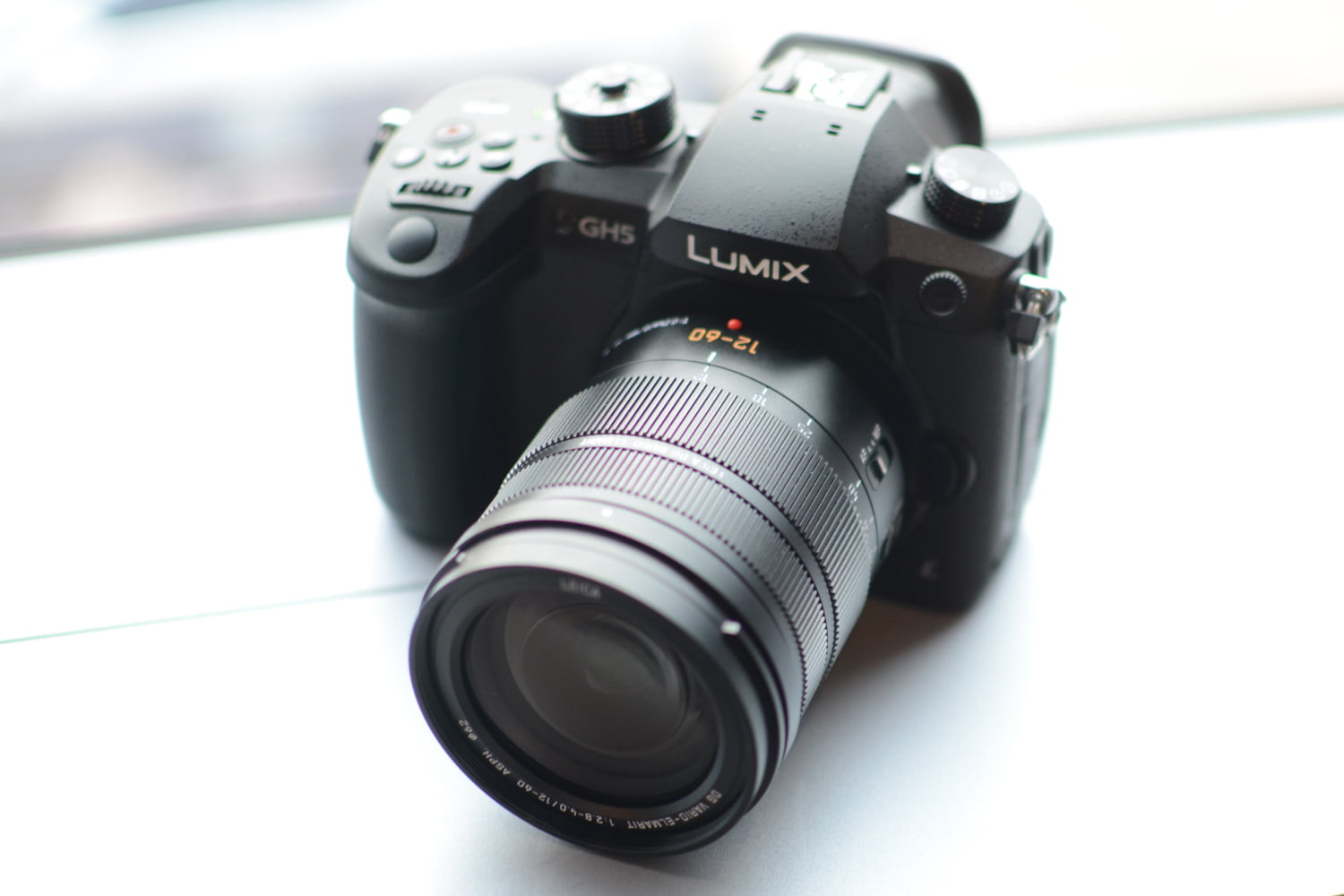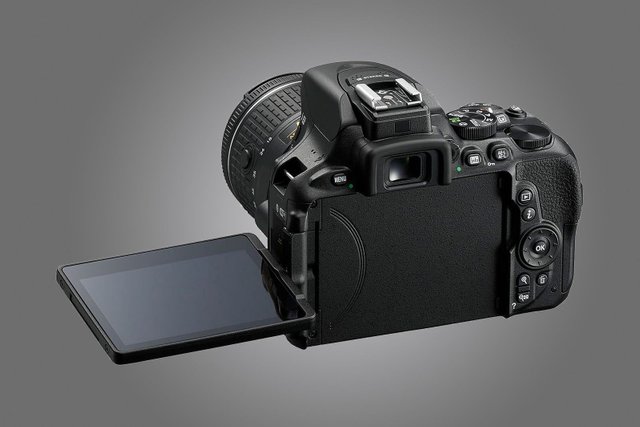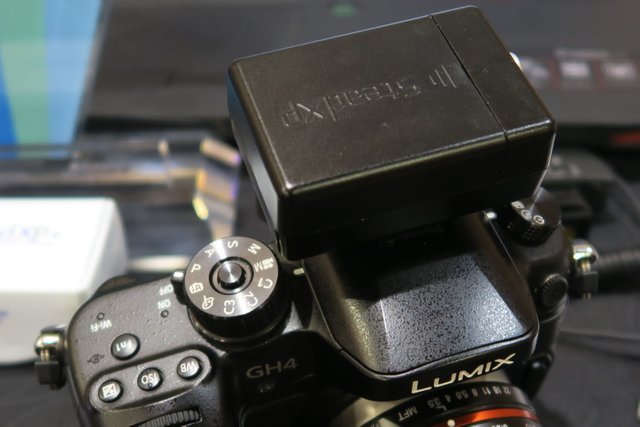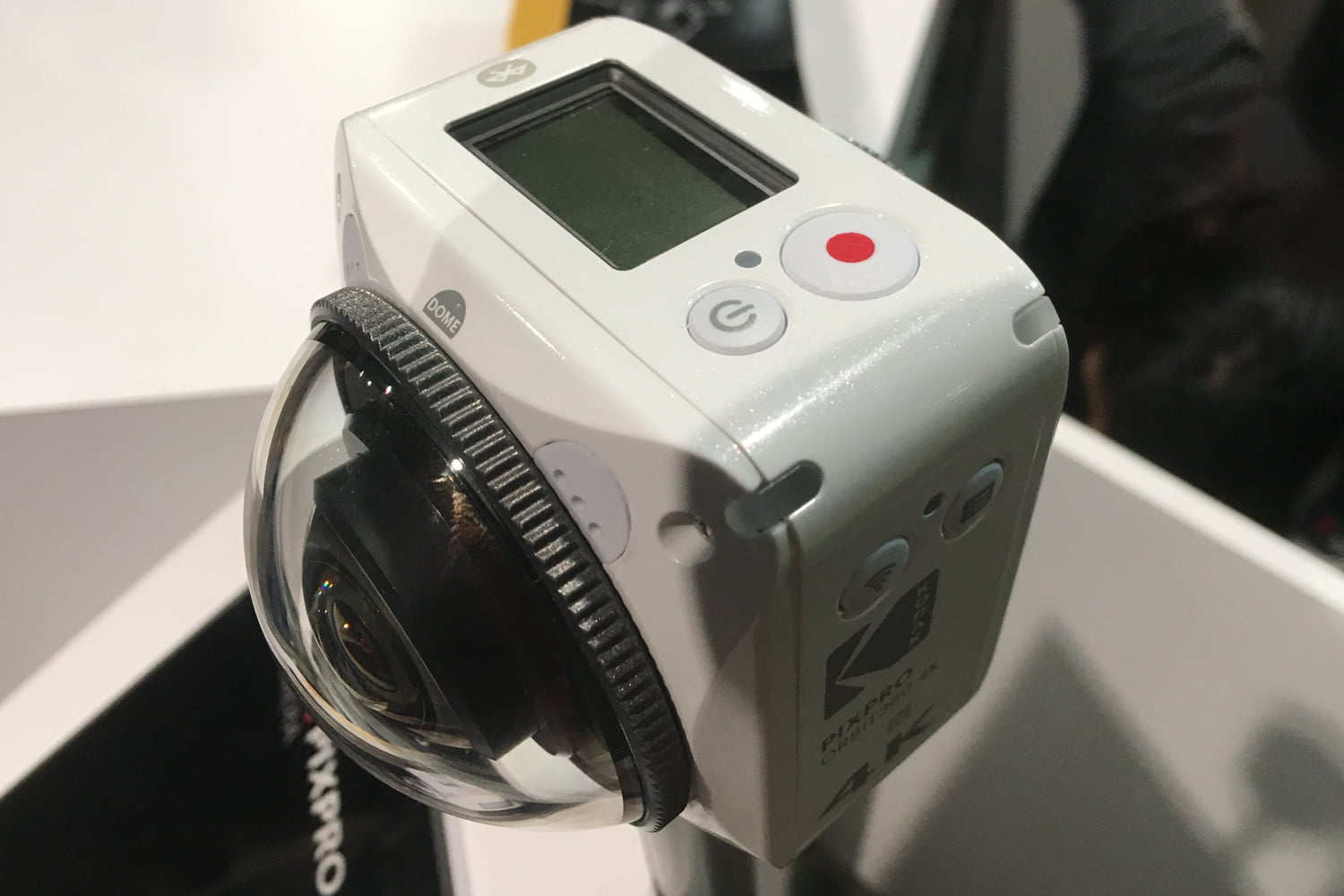Panasonic Lumix GH5

The powerful Lumix GH5 mirrorless camera took home the top tech of CES award, and for good reason. While technically announced last fall at Photokina, it was here at CES for a first look at a production model GH5 and its final specifications. The headlining features of this $2,000 flagship camera are 4K video at 60 frames per second and a 6K Photo mode that fires off 18MP sequences at 30fps. Panasonic has thrown in plenty of other goodies for professional filmmakers, like in-camera 4:2:2 10-bit video and simultaneous internal/external recording.
Accompanying the GH5 was the announcement of five new lenses: a brand-new 12-60mm f/2.8-4 and updated versions of the 12-35mm f/2.8, 35-100mm f/2.8, 100-300mm f/4-5.6, and 45-200mm f/4-5.6. All the new lenses are weather-sealed and feature new auto focus systems, improved image stabilization, and micro-step irises for smooth aperture adjustments in video.
Nikon D5600 is official in the U.S.

While announced in Japan last fall, Nikon held off the official U.S. unveiling of the D5600 until CES 2017. It represents a slight refinement of the D5500 rather than a complete overhaul, but that is not that a bad thing: The D5500 was always a capable DSLR with excellent image quality; a fantastic option among sub-$1,000 cameras. The D5600 gets enhanced touchscreen capabilities and adds Bluetooth Low Energy for sharing images to a phone or tablet without drawing as much power as Wi-Fi. The D5600 starts at $700 for the body only.
Professional 360 video for less: Insta360 Pro and Hubblo VR

Professional 360-degree video rigs can cost in the tens of thousands of dollars, but two companies are looking to shake up the industry with high-quality, inexpensive alternatives. The Insta360 Pro and Hubblo VR can shoot 4K video in 3D and 360 degrees. The Hubblo does it for just $1,000, while the InstaPro takes things up to $3,000, but adds options for 8K video and photos.
Should these cameras achieve their goal of democratizing 3D 360 video, consumers may soon have much more content to watch on their VR headsets.
SteadXP stabilizes video from DSLRs and GoPros

The SteadXP came to CES by way of Kickstarter, where it raised over half a million dollars. It is essentially a box with an accelerometer inside to measure pitch, roll, and yaw — information that can be used to stabilize video the same way a smartphone does it.
Available in two versions, the SteadXP attaches either to any camera with a hot shoe or to the back of a GoPro with a BacPac port. Price is about $272 for one model and $198 for the other.
Kodak goes new school and old school

Since licensing its name to multiple companies, Kodak seems to have somewhat of an identity crisis, but maybe that’s OK. Both JK Imaging and Kodak Alaris announced new products bearing the Kodak brand at CES this year, and they couldn’t be more different.
JK Imaging showed off a dual-lens 360 cam that shoots immersive 4K videos and sells for $499, while Kodak Alaris reintroduced Ektachrome 100. Yes, as in the 35mm film. The return of Ektachrome may seem odd from a brand that lost just about everything because it refused to go digital in the early days, but Kodak Alaris is confident there’s a market. And film photographers are rightly excited.
Upvote, Resteem and Follow me @man-d
Congratulations @man-d! You have completed some achievement on Steemit and have been rewarded with new badge(s) :
Click on any badge to view your own Board of Honnor on SteemitBoard.
For more information about SteemitBoard, click here
If you no longer want to receive notifications, reply to this comment with the word
STOPBy upvoting this notification, you can help all Steemit users. Learn how here!
Downvoting a post can decrease pending rewards and make it less visible. Common reasons:
Submit